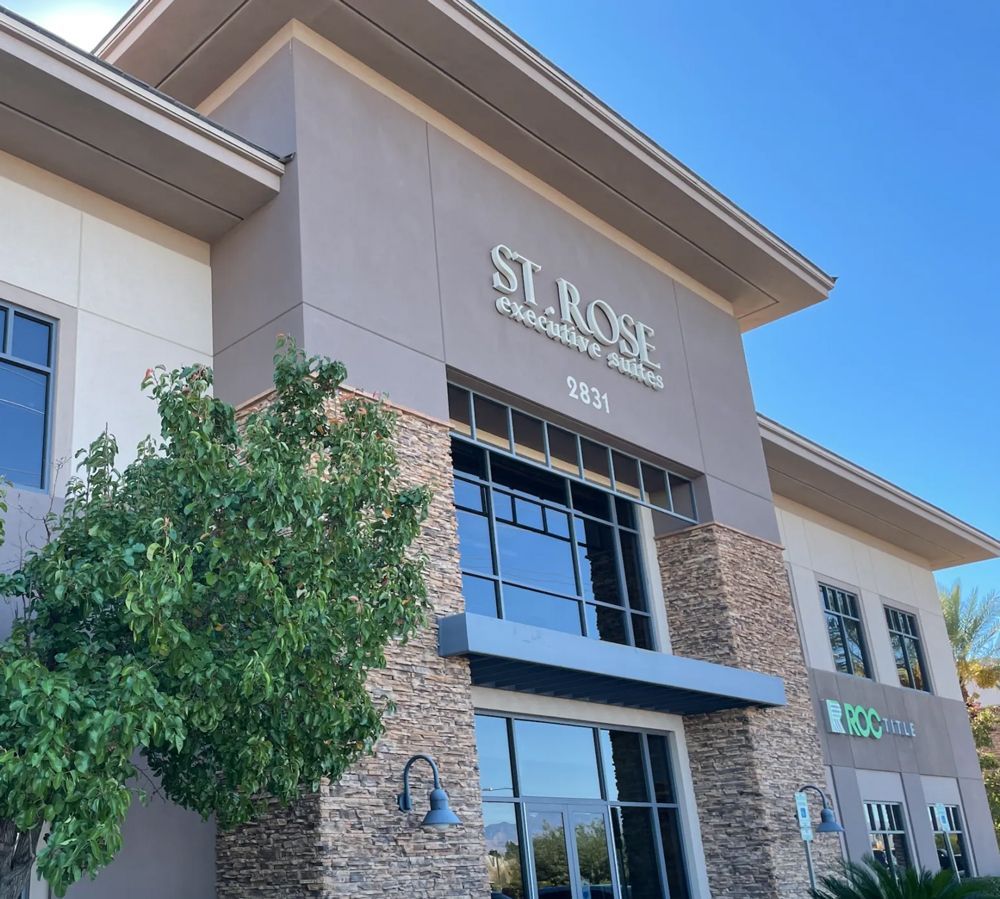Upgrade Your Copier Contract
Office equipment contracts are complex, time consuming, and always leave customers questioning whether or not they got a good deal on their copier contract. Regardless, it is an important business decision because it can save you so much money. In fact, one that most companies only make every several years. It seems that in order to get a good deal, you have to have industry insider knowledge. That’s why we want to offer you some copier tips.
Deceiving Tips
Industry experts may offer you some intriguing insight. In fact, there are many publications written to guide you through this process. The problem is, these copier tips are provided by copier dealers and manufacturers. This is a strategy they use to promote their own businesses. As a consequence, many of them are misleading. For this reason NuQuo put together the “Top 5 mistakes that companies make when buying a Copier/MFP’s.”
So, how is NuQuo different you might ask? NuQuo is an independent consulting firm composed of highly experienced insiders from the business equipment industry. We work on behalf of the customer, providing copier tips and insight. This allows NuQuo to be completely transparent with information that will save you time & money, while avoiding costly contractual mishaps.
1. Buying The Wrong Product – Over/Under Buying
So many companies fall into this trap. About 72% of the purchases NuQuo reviews are buying the wrong devices or products that aren’t the best fit for their business. That doesn’t mean they can’t work, it just means you aren’t getting the best ROI as a company.
First Client Story
In March 2015 I spoke with a company that was getting a great deal on their copier equipment. They were buying off of a Group Purchasing Contract and paying far less than they would with their own purchasing power. I asked them a simple question. How do you know you need a 45ppm Color Copier/MFP? The answer, “It was a good price, what would NuQuo purchase”. We quickly did a study and found that a 30ppm copier would work just fine for 80% of this companies 150 units, with a cost difference of $1,500 per unit.
Now we understand that not every company has 150 copiers, but the point is even $1,500 for one Copier/MFP can make a big difference to your company
Second Client Story
With another client we recently spoke with, they were looking to purchase copier equipment and had five quotes for machines that were A3 design meaning they could copy/print (Letter, Legal, Ledger) sized paper. We asked the company how much 11 X 17 paper (Ledger) they ran each month. To our surprise, the answer was “None”! We quickly pointed out that every manufacturer makes a Copier/MFP in an A4 design (Letter/Legal) size paper only, and the cost difference was almost 30% less.
Regardless of what type of Copier/MFP you are purchasing, make sure you are purchasing the right one. For NuQuo clients we commonly use our copier tips to help them create an equipment strategy, which we find many companies don’t have a handle on. Other considerations we take into account are:
Life Expectancy
Every machine has a life expectancy. Whether purchasing or leasing, a general rule of thumb is to make sure you are using at least 80% of this life expectancy or you are likely buying the wrong product.
Machine Design
A3 versus A4 design. What paper types are you using?
Don’t Overbuy
Companies spend thousands of dollars every year on accessories they don’t need.
Ratings
Many manufacturers have numerous awards behind their name. How can that be? It is because every manufacturer has unique offerings in different segments of machines. Some companies may have better B&W while others have better Color, etc. There are also rating systems out there that rate vendors as Tier 1, Tier 2, and Tier 3 products. These typically take into consideration the entire manufacturer’s line of equipment.
Black & White vs. Color
Almost every B&W copier will also scan in color, but do you need a color Copier/MFP? How much do you outsource color and will your needs change over the life of the contract? If you are unsure and buy a B&W copier make sure it at least scans in color. Then if forced to you can buy a color printer (much less expensive) and utilize the two machines in tandem to scan/print color.
A few other considerations are Size, Space, Power requirements
2. Financing Copier Tips
Depending on whether your company leases or purchases our copier tips can taken with a grain of salt. To be as accurate as possible, we will discuss several facets of this topic and break them down for you.
Leases
We often see two types of leasing in the copier industry. Fair Market Value (FMV) and $1 out leases. There are other types like block leases, etc…but these are the most common leases.
General rule of thumb
FMV leases are operating leases and $1 buyout leases are capital leases, although I will point out that this is not always the case and you should contact your accountant about FASB13 rules. Companies generally lease equipment for 36 months, 48 months, and 60 month terms in the copier industry.
Short vs. Long Terms
Why do some companies go with shorter terms rather than longer ones? This is typically because a company is interested in turning their technology around faster. In these situations companies normally do a 36 month operating lease. Companies that want the best bang for their buck generally go with a 60 month contract.
Interest Rates
Leasing companies in the copier industry don’t use interest rates. They use a system called factor rates and these are often confusing. A 36 month FMV term generally has a factor rate of .02, 48 FMV is typically .024 and 36 FMV is typically .0295. To determine your payment you simply take the cost of goods and multiply it by the rate factor for the term you are leasing. This will give you the monthly cost of the lease.
Example: Company A is leasing a copier for $10,000.00. If they did a 36 month FMV term the payment would be $295.00, a 48 FMV term would be $240.00, and a 60 FMV term would run $200.00 or approximately 19% less than a 36 month term.
Client Experience
A few months back I talked with a company that always leased their equipment for 36 FMV month terms. They always leased using FMV, because they didn’t want to own the equipment. At the end of the contract, they simply sent in a cancellation letter and a vendor would upgrade their contract and send the equipment back to the leasing company on their behalf. This had been the way they were doing business for over 10 years. The 36 month lease payment was $2,600.00. So I said to them, do you realize that if you did a 60 month term that in 15 years you would save over $150,000.00?
Client Solution
That’s when they told me they couldn’t do a 60 month term, because several devices needed to be rotated with the newest technology. After digging deeper we identified two devices that met this requirement. NuQuo helped them work out an equipment strategy that leased all but two of the devices on a 60 month contract while the other two devices were put on a 36 month contract. This still resulted in a savings of over $7,000.00/year over the next 15 years.
However you may be interested to know that NuQuo has developed a program where companies can turn their equipment every three years, while maintaining the cost of a 60 month contract.
Copier Statistics
According to our research 9 out of every 10 leases we see tend to be FMV leases, meaning a company doesn’t own them at the end of the term. The company can buy the technology for what the leasing company suggests is FMV. In most of these cases clients never keep the equipment all the way until the end of the contract. They are generally upgraded 3 months to 12 months prior to lease end.
Cash Purchases
Cash purchases tend to give companies the most flexibility with their technology, but for obvious reasons (cash flow) this isn’t the route that most companies go.
Our Copier Tips
Did you know that in most cases the copier dealer is getting a kick back from the leasing company?
Companies are far better off separating their lease from their service contract. Did you know that if you do an early upgrade a lease that has services combined that you are pre-paying for all of the service you haven’t even run yet?
Separating your Lease from the Maintenance creates transparency in costs, and gives the customer options. For instance what if you decide a year down the road that you don’t like the servicing company. You can’t change service providers, because you are locked into the term of the lease.
In an FMV lease when a company upgrades the lease, the vendor replacing the equipment rolls a ship back fee of $250-$450/per device into the new contract?
Did you know that in over 80% of the leases NuQuo reviews, customers are paying for late fees, property damage surcharges, or a higher interest rate than they should be?
Did you know that rolling your lease over always adds principal to your new lease? Dealers will disguise this with marketing promo’s or trade-up dollars, but the fact is if you go to term, you will always get a better price on the new contract.
3. Copier Tips For Price Negotiation
Price negotiation is one of the largest subjective topics we discuss. Nobody ever thinks they are getting a bad deal, but the truth of the matter is most of them are. One of our most important copier tips is to never be complacent with your current pricing. There are two areas that customers need to focus on for price negotiation. They are the cash or lease price for the equipment, and the price for the maintenance contract.
Cost Saving Methods
Below are the methods that vendors typically use to save companies money on their new purchase or lease:
Marketing Promo’s or Manufacturer Rebates. Did you know that these rarely happen? Most of the promos that representatives pass on are made up of giving incentives on an inflated price to try and show a customer value.
Downsize Equipment
Removal of Accessories
Extend the term: how many of you have seen a 63 month contract?
Removal of Equipment / Consolidation
Reduced Service Cost
Lower Equipment Price-Usually the last resort!
Cost Negotiation
How do you know when you negotiated a good price? I have heard people say when the vendor stops lowering the price, they think they have the best pricing. The truth of the matter is this isn’t always a guarantee that you have the best price. The best thing you can do to ensure the best price is to:
First of all, put out an RFP. Representatives have a cost of goods that is the best they can do. That being said, there are many levels to the best cost of goods. By running an RFP you ensure you are getting the best discount or lowest Management cost
Ask for “Most Favored Customer” guarantee. This will force a vendor to give you the best price for equipment / services.
Buy off a pre-negotiated Contract / GPO. Your buying power is only as good as the size of your purchase, but if you buy off of a contract or GPO you can utilize the buying power of a group which will typically save you a lot of money.
4. No Equipment Strategy / ROI Calculator
It is now more important than ever for companies to understand and implement a Business Equipment Strategy. This is because technology is changing so quickly and frequently. If you ask most companies what their business equipment strategy is they will just look at you like a deer in headlights. If you ask a vendor they have been trained to talk around the points of Standardization, Optimization, and Consolidation. Although many of them can’t tell you when each of these strategies should be utilized to maximize value.
Five Key Areas
Many companies also fail to realize that the process for acquiring technology today is really based in five key areas: Analysis, Understanding the Equipment, Price Negotiation, Financing, and Terms & Conditions.
To build the best strategy, it’s critical to measure costs and efficiencies and receive Executive sponsorship for future changes.
Building A Strategy
The first step in building your equipment strategy is doing a thorough assessment of your current equipment, contracts, wants, and needs. It is important that as you put this assessment together that you consider the meters of your equipment and the Life Expectancy of each device to maximize performance and value.
Beware of Free Assessments
First and foremost: The goal of the vendor is to build a relationship and their analysis may not be neutral in scope as the vendor has an agenda, mainly their product.
The analysis may not be done correctly if the vendor is inexperienced. How do you know if the information gathered has been analyzed correctly?
The vendor may use a timeframe that benefits their goals. Vendors could subject the analysis to a time period that has higher volume to authenticate their solution.
The trick here is to have someone on your side that understands the equipment industry. They can help you architect a solution that best fits your company needs. Crafting a solution takes an expert, not guesswork. Every move should have a precise purpose and you should take into consideration the volumes for each device, the life expectancy of each device, and the cost of each device to maximize overall value and build the optimal solution.
5. Terms & Conditions
Of all our copier tips, this is the most important! No one looks at Terms & Conditions. In fact 95% of the contracts that NuQuo views have fewer than two changes to the terms & conditions. Yet all of these contracts are written to benefit the vendor or lessor. These types of terms are costing companies millions of dollars every year. In short, holding the vendor honest is what we do.
Client Experience
For instance, just last week we looked at a contract where a client signed a lease that gave the client a three day grace period before a lease payment was considered late. The company policy was set at Net 30 and every month they were incurring a late charge of $325. That may not seem like a lot, but it is costing this one customer over $19,000 over the life of the loan.
Keep in mind there are some Terms & Conditions that can be modified, but not entirely removed on a lease document. However on a service contract, most things can be negotiated out to neutral or removed if it is done before an equipment contract is signed.
Maintenance Contract Copier Tips
Yearly Contract Increases
A base or allowance guarantee. Most vendors will accept a “0” allowance and if they won’t then you can generally force them to do a True-up with credits for unused pages
Net terms for invoice and grace period
Non-Performance
Cancellation notices
Acceptable service levels
Penalties for unacceptable service
Lemon clauses
We appreciate the opportunity to share our knowledge and information with all of our clients. We know that these copier tips will help to ensure you avoid the costly mishaps of negotiating a bad contract. For more information please contact us at support@certaintyteam.com , or call us at (888) 684-3122 .











